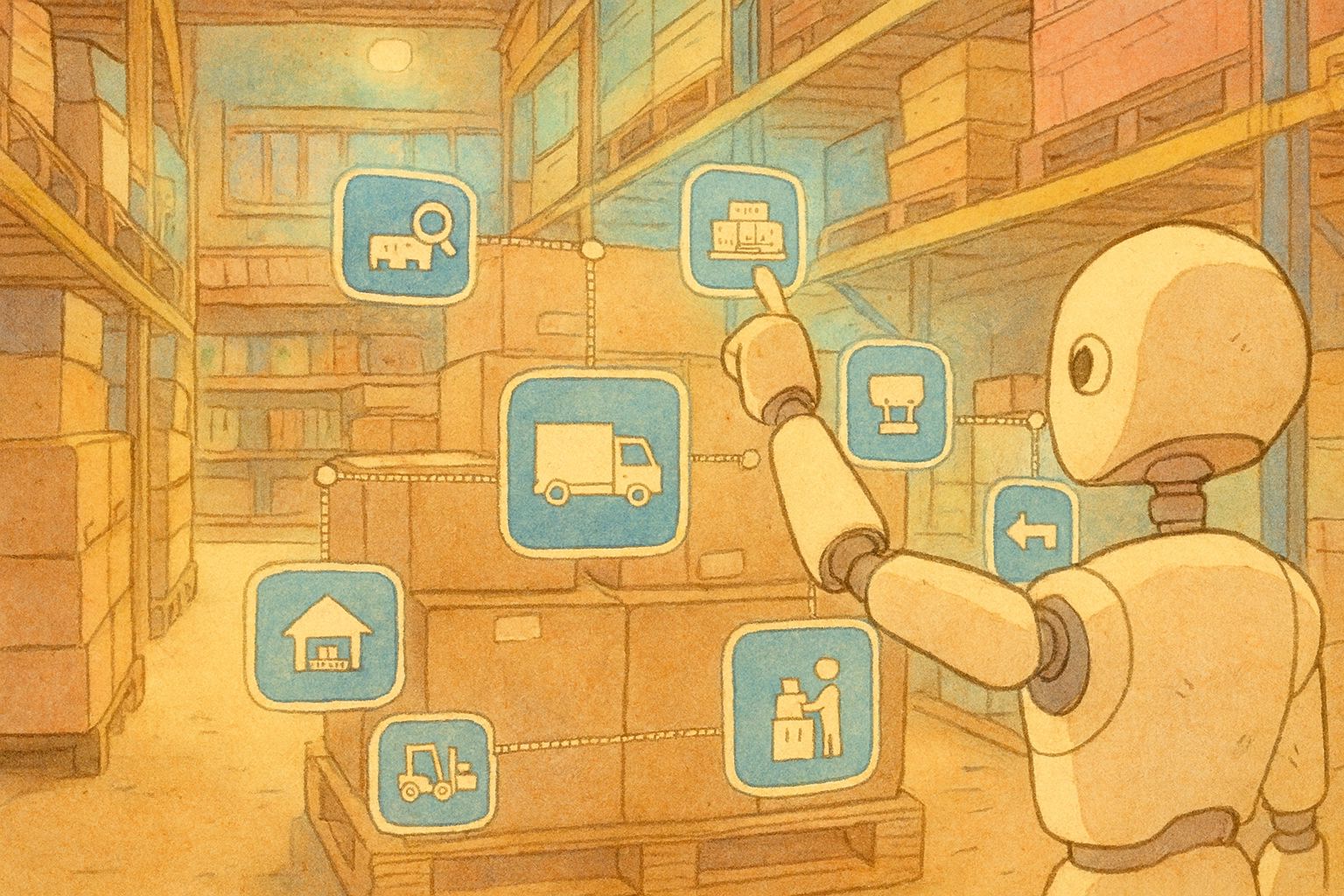- The Prohuman
- Posts
- Walmart AI agent?
Walmart AI agent?
Plus: The complexity of supply chain can't be resolved by AI yet
Welcome, Prohumans.
Here’s what you’re going to explore in this post:
Walmart bets on AI agents for retail edge
Why GenAI alone can’t solve supply chain complexity
AI agents may be the missing piece for Web3
Just happened in AI
Keep This Stock Ticker on Your Watchlist
They’re a private company, but Pacaso just reserved the Nasdaq ticker “$PCSO.”
No surprise the same firms that backed Uber, eBay, and Venmo already invested in Pacaso. What is unique is Pacaso is giving the same opportunity to everyday investors. And 10,000+ people have already joined them.
Created a former Zillow exec who sold his first venture for $120M, Pacaso brings co-ownership to the $1.3T vacation home industry.
They’ve generated $1B+ worth of luxury home transactions across 2,000+ owners. That’s good for more than $110M in gross profit since inception, including 41% YoY growth last year alone.
And you can join them today for just $2.90/share. But don’t wait too long. Invest in Pacaso before the opportunity ends September 18.
Paid advertisement for Pacaso’s Regulation A offering. Read the offering circular at invest.pacaso.com. Reserving a ticker symbol is not a guarantee that the company will go public. Listing on the NASDAQ is subject to approvals.
How Walmart is using AI agents to reshape shopping

Walmart isn’t just testing AI, it’s embedding AI agents into the shopping journey. The goal: optimize customer experience at scale while staying ahead of rivals like Amazon.
Here’s everything you need to know:
Retailers are shifting from static algorithms to adaptive AI agents that can act autonomously.
For Walmart, that means AI agents analyzing customer data in real time to improve product recommendations and search.
Agents can also help optimize pricing, inventory, and supply chain flows behind the scenes.
Digital twins, virtual models of stores and operations, let Walmart simulate changes before rolling them out.
This approach doesn’t just reduce costs; it aims to make shopping feel more personal and intuitive.
As more retailers embrace agentic AI, the line between digital and physical shopping will blur.
The real differentiator will be trust, AI systems that are accurate, transparent, and reliable.
Walmart’s play shows where retail is headed. It’s less about flashy front-end tools and more about invisible AI agents reshaping the backbone of shopping. The retailers that thrive won’t be the ones with the biggest datasets, they’ll be the ones who turn those datasets into decisions customers actually feel.
Beyond the hype: AI agents in supply chain design

Supply chains don’t run on hype, they run on precision. And while GenAI has opened up powerful new possibilities, its probabilistic nature clashes with the deterministic world of logistics. The future isn’t GenAI vs. math, it’s GenAI + math.
Here’s everything you need to know:
Supply chain decisions involve millions of interdependent variables too complex for GenAI alone.
GenAI shines when paired with optimization and reinforcement learning inside a stable framework.
Coupa has introduced patent-pending “hallucination mitigation” to address GenAI’s math gaps.
Their AI agents, branded as Coupa Navi™, deliver explainable and accurate recommendations.
The model blends human domain expertise with machine efficiency, keeping decision-makers in control.
Use cases include demand forecasting, inventory optimization, and global trade compliance.
The real breakthrough isn’t automation for its own sake, it’s automation you can trust.
Supply chains don’t need “creative” answers, they need correct ones. The companies that win won’t just adopt AI; they’ll design frameworks where AI is constrained, explainable, and aligned with real-world logistics. The danger isn’t underusing AI, it’s misusing it.
AI + Web3: The Next Internet Revolution

AI and Web3 are no longer moving in separate lanes. Instead, they’re merging into a single force that’s shaping how we’ll interact with data, money, and digital ownership. And one company; Datavault AI is already showing us what that future could look like.
Here’s everything you need to know:
Web3 promised decentralization and data ownership, but scalability and trust issues have slowed adoption.
AI is solving those problems with automation, threat detection, and adaptive interfaces that make decentralized systems easier to use.
Datavault AI just posted triple-digit revenue growth, signaling real demand for AI-powered Web3 tools.
Partnerships with IBM and major exchanges suggest enterprise adoption is accelerating.
Their flagship products: Data Vault Bank®, DataScore®, and DataValue® turn enterprise data into tradable, compliant, and financially valued assets.
The rise of AI agents could lead to “zero-human” enterprises, where algorithms handle DeFi trades, DAO governance, and smart contract security.
If successful, this could unlock an entirely new data economy, one where information itself is a liquid, tradable asset.
The AI Web3 merge isn’t hype, it’s a logical progression. Web3 without intelligence stalls; AI without decentralization centralizes power. Together, they create a system that’s both adaptive and fair. The real question is whether adoption will be gradual or sudden. My bet? Once AI agents prove themselves in live markets, the shift will come faster than most expect.

Thanks for reading…
That’s a wrap.
What's on your mind?
Share your best ideas with us at theprohumanai@gmail. com
We'll bring your ideas to life. Send them our way, and we'll get to work on making them a reality.
Did you find value in our newsletter today?Your feedback can help us create better content for you! |
 | I hope this was useful… If you want to learn more then visit this website. Get your brand, product, or service in front of 700,000+ professionals here. Follow us on 𝕏/Twitter to learn more about AI: |

